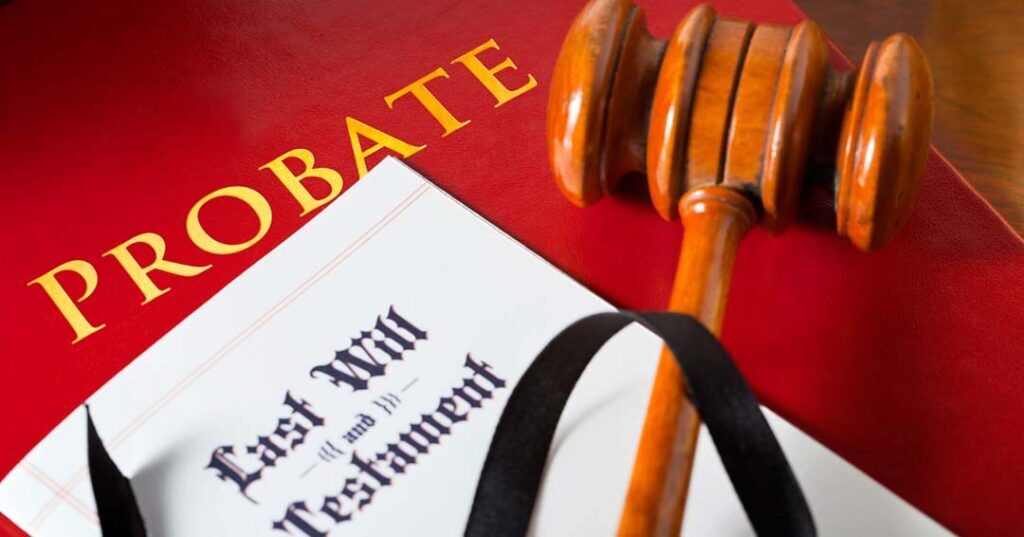Thai probate and inheritance law applies on the death of a person and his property has to be divided among his legal heirs or any person mentioned under his will. In order to transfer property in Thailand after the death of a person, it is necessary to obtain a court order after it has been proven that the person receiving the property is a legal heir or that his name was stated in the deceased person’s will. In situations where anyone dies without leaving his last will in Thailand, then the statutory Thai inheritance law will be applied, according to which the deceased person’s estate assets will be distributed among his legal heirs.
Probate of an Estate
Probate of an estate can be defined as the administration that looks after the estate of the deceased person’s property. Probate administration is crucial since it helps in protecting property of the descendant by making sure that it gets distributed to the person’s will and to his legal heirs. It is mandatory to present relevant evidence before the Probate Court to prove that you are a legal heir of the deceased person, and only then you will get your legal share in the deceased person’s estate.
Transfer of Property at Death in Thailand
In order to transfer property at the death of a person in Thailand, it is necessary to obtain a probate order from the Thailand Probate Court. It must be noted that property can either be transferred through a will or intestate succession at death. In both these cases, the property can only be transferred once the court approves and issues orders for the property to be transferred in Thailand.
Classes of Legal Heirs in Thailand
In case a person dies without making a will in Thailand, then the Thai inheritance law will be applied. According to section 1629 of the Civil and Commercial Code, the statutory heirs of a deceased person can be divided into six classes that can inherit in the following order as described below:
- Descendants
- Parents
- Full-blood brothers and sisters
- Half-blood brothers and sisters
- Grandparents
- Aunts and uncles
In addition to these six classes of legal heirs, the estate assets of the deceased person will also be distributed to the surviving spouse of the deceased based on section 1635 of the Code.
Inheritance by foreigners in Thailand
Many people raise the question of whether a foreigner can inherit in Thailand. According to section 1639 of the Code, a foreigner can inherit from his spouse who is a Thai national. According to clause 93 of the Land Code, a foreigner that acquires property by inheritance in Thailand can have ownership over the property only after receiving approval of the Minister of Interior. It must be noted that the share of the foreigner must not exceed the limits described in section 87 of the Code.
Foreign Court Judgments
A lot of times issues regarding foreigners and their last will come up in the courts of Thailand. Foreigners tend to use foreign court judgments to pursue their cases. However, it must be noted that foreign court judgments aren’t enforceable in Thai courts, but they can be used as evidence during probate proceedings in Thailand.
Foreign Wills in Thailand
Unlike foreign judgments, foreign wills may be enforceable in Thailand. In order for a foreign will to be enforceable in Thailand, it is necessary for it to be consistent with Thai laws.
Death of a foreigner in Thailand
In case a foreigner dies in Thailand, then the relevant authorities will contact the embassy that will notify the relatives of the deceased person about the foreigner’s death. These relatives will then hire an attorney to initiate a probate proceeding in Thailand in order for the estate assets of the deceased person to be shared among the legal heirs of the foreigner.
Probate Procedure in Thailand
Generally, when someone dies in Thailand the probate process is started under Thai law. This process is followed for either probating the will of the person who died or for looking after the deceased person’s property who did not leave behind his last will and testament. It must be noted that the probate process may vary based on the case’s facts. The procedure commonly followed for the probate of an estate is described below:
- Gathering of facts
First and foremost, the client and his attorney will discuss all elements of the estate assets of the deceased person and check whether he had a last will or not. The attorney will check for the legal heirs of the deceased person, any debts that he had, and gather relevant information about the deceased person’s estate assets. - Drafting and filing of an application to initiate probate procedure
In order to initiate a probate procedure, the lawyer has to file a court application on behalf of his client for either probate of a will or for the administration of the estate. Legal notices will be sent to the concerned parties once the probate application is filed. - Hearing at the Thai Probate Court
Once all the notices have been sent to the relevant parties of the cast, the probate court in Thailand will then issue a hearing date for the applicant in which he will present his testimony on oath about the deceased person and his estate. After the hearing ends, the court shall appoint a representative who will have the authority to probate the will of the deceased person or administer his estate. - Transferring of the property
After it has been proven that the parties concerned are the legal heirs of the deceased person, or that the descendant left a share of his property in the name of that person, then the personal representative can start the drafting of new deeds to transfer the legal ownership of the property among the heirs. This is what happens when no issues are raised during the hearing procedure, however, in situations involving divorce, murder, debt cases or invalid estate documents etc, the procedure tends to get complex and time-consuming.
Thailand Probate Lawyer
Siam Legal is a law firm in Thailand that offers various services that are designed to protect the rights and interests of foreigners in Thailand. Should you have any questions or issues relating probate and inheritance that need to be addressed, our team of Thailand probate and property lawyers invite you to contact us through the link below:
LIVE SUPPORT
 CALLCall +66 2 254 8900 |  CHATChat with our representative |




































